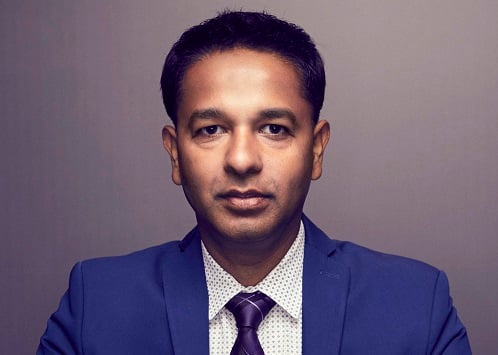Shekhar built his brand so that people came to him, not the other way around

Origination is a go-go-go profession in a go-go-go world.
There is, however, a time for reflection, and top originator Shashank Shekhar knows how to use that to his advantage.
Shekhar is at once personable and no-nonsense; down to earth with sky-high goals. He meditates every morning—before going out and killing it every day. He’s the CEO of Arcus Lending, which he founded in 2008.
The shift to a purchase market may have been drastic, but Shekhar said that what really allowed him to do so well over the past couple of years was reflecting on his past business and taking a hard look at what worked for him before, a technique that could benefit all originators, regardless of production.
“One thing that I always try to look at is that, what was the time when I got my biggest growth, and what was I doing then? As established originators, we usually don’t like to go back to those hustling days. And I’m telling you, by the way, from my personal experience. It may seem that everything is perfect, but it’s not. Because there are days, weeks, if not months, where I know what works for me but I don’t want to do it,” he said.
For Shekhar, when the market started to shift, this meant going back out into the fray and going to more realtor events and getting more realtors into his database, doing one-on-one meetings and all the things he was doing when he built his business.
“It’s very tough—and it’s tougher for a person that has been in the business for some years and has been doing great production than somebody who just started. But that’s the only way to do it, is to go back to fundamentals, see what built your business, and just redo it all over again.”
Something else that eventually turned into business for Shekhar was his work as a content creator. He was a recent immigrant to the States in 2008, and didn’t have much of a network at all. He started looking for ways to attract people to him, and landed upon blogging. It was months before anything came out of that content, though, much less any leads. Now, with an incredible number of blog posts and a handful of books under his belt, in addition to being featured on news outlets across the country, he’s seen as a true real estate and housing expert.
Technology has made the dissemination of content easier now than it was 10 years ago, but Shekhar said that the onslaught of social media means that he’s had to scrutinize each platform and decide what content goes on which platform.
“I’m very intentional about what social media is being used for what . . . you treat different platforms differently with different strategies for different platforms. So Twitter, I primarily use that to connect with influencers,” he said, and those connections will sometimes reach out to him for comment or context on the housing market, after having seen his work elsewhere. “Things like that start happening once you’re at a tipping point of your content creation. Things like that will happen. But if that’s what you go in with, you’ll very soon get frustrated with the fact that [you’re] not getting results from the people that [you] want.”
Using social media for lead generation is more of a long-game strategy, Shekhar said, and going in with short-term goals will lead to disappointment. Instead, treat it more as a conversion tool. Shekhar’s ‘aha’ moment was when he began getting calls from people who, even though they were referred to him, would still search his name online and find his content.
“It sets you up as an expert so any time a client came to me, I would kind of direct them to my blog intentionally [by] saying, ‘hey, read this post, which will be useful to you,” he said. “I was trying to get them on there so that once they get there they will read 20 posts, but I wanted to get them there.”
Shekhar leans hard toward a direct-to-consumer model, which has pros and cons. He doesn’t rely solely on realtors, which is freeing, but he also finds difficulties in other areas. In the San Francisco Bay area, he gets beat a lot on price, and so while he said he has about a 90% conversion rate with clients who come to him preapproved, he loses about 90% of clients who come to him through a rate shopping process. As a broker, he’s much stronger on conforming and FHA loan amounts—which aren’t exactly common in the Bay Area. So last year he got licensed in 14 states, states where his team can push more conforming business.
Expanding a brand into new markets is hard, but again, it’s a long game. Big picture, Shekhar wants to further elevate his brand, and part of that goal is to be seen by more people in more markets as an expert in the space.
“Will I get on CNN, I don’t know. Will I get on CNBC, I don’t know. But it’s about, is that my next level, is that where I want to be? Yes, I want to be. So I’ll try whatever needs to be tried to do that. And if I end up there then I’ll end up there.”



